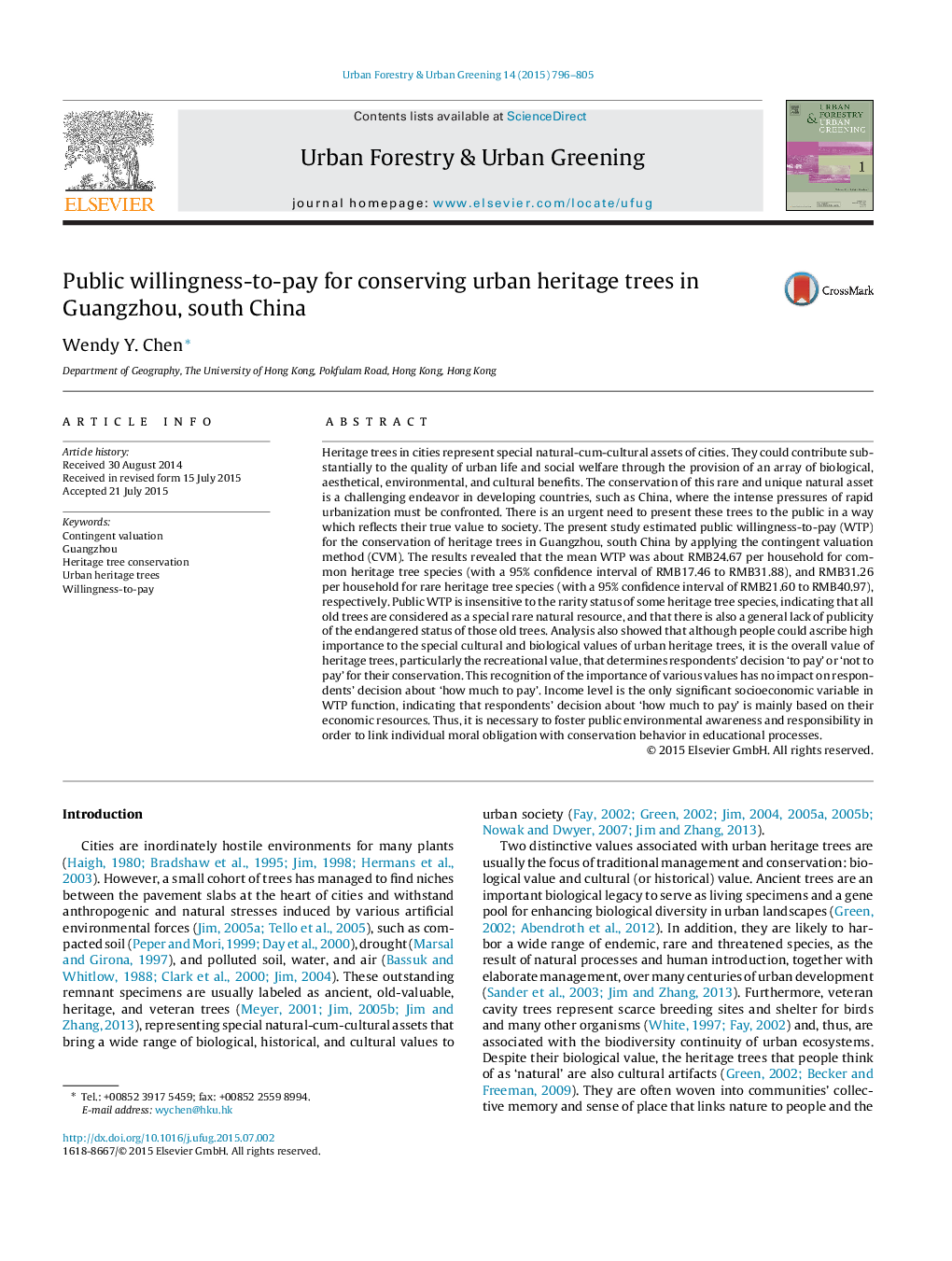| کد مقاله | کد نشریه | سال انتشار | مقاله انگلیسی | نسخه تمام متن |
|---|---|---|---|---|
| 10252086 | 160243 | 2015 | 10 صفحه PDF | دانلود رایگان |
عنوان انگلیسی مقاله ISI
Public willingness-to-pay for conserving urban heritage trees in Guangzhou, south China
ترجمه فارسی عنوان
تمایل عمومی برای حفظ و حفظ درختان میراث شهری در گوانگژو، جنوب چین
دانلود مقاله + سفارش ترجمه
دانلود مقاله ISI انگلیسی
رایگان برای ایرانیان
کلمات کلیدی
ارزیابی احتمالی، گوانگژو، حفاظت درخت میراث، درختان میراث شهری، تمایل به پرداخت،
موضوعات مرتبط
علوم زیستی و بیوفناوری
علوم کشاورزی و بیولوژیک
جنگلداری
چکیده انگلیسی
Heritage trees in cities represent special natural-cum-cultural assets of cities. They could contribute substantially to the quality of urban life and social welfare through the provision of an array of biological, aesthetical, environmental, and cultural benefits. The conservation of this rare and unique natural asset is a challenging endeavor in developing countries, such as China, where the intense pressures of rapid urbanization must be confronted. There is an urgent need to present these trees to the public in a way which reflects their true value to society. The present study estimated public willingness-to-pay (WTP) for the conservation of heritage trees in Guangzhou, south China by applying the contingent valuation method (CVM). The results revealed that the mean WTP was about RMB24.67 per household for common heritage tree species (with a 95% confidence interval of RMB17.46 to RMB31.88), and RMB31.26 per household for rare heritage tree species (with a 95% confidence interval of RMB21.60 to RMB40.97), respectively. Public WTP is insensitive to the rarity status of some heritage tree species, indicating that all old trees are considered as a special rare natural resource, and that there is also a general lack of publicity of the endangered status of those old trees. Analysis also showed that although people could ascribe high importance to the special cultural and biological values of urban heritage trees, it is the overall value of heritage trees, particularly the recreational value, that determines respondents' decision 'to pay' or 'not to pay' for their conservation. This recognition of the importance of various values has no impact on respondents' decision about 'how much to pay'. Income level is the only significant socioeconomic variable in WTP function, indicating that respondents' decision about 'how much to pay' is mainly based on their economic resources. Thus, it is necessary to foster public environmental awareness and responsibility in order to link individual moral obligation with conservation behavior in educational processes.
ناشر
Database: Elsevier - ScienceDirect (ساینس دایرکت)
Journal: Urban Forestry & Urban Greening - Volume 14, Issue 4, 2015, Pages 796-805
Journal: Urban Forestry & Urban Greening - Volume 14, Issue 4, 2015, Pages 796-805
نویسندگان
Wendy Y. Chen,
